Bronze Winged Pionus Fertile Parrot Eggs
$80.00
Bronze Winged Pionus Fertile Parrot Eggs
-
Physical characteristics and unique features
-
Popularity as pet birds
-
Natural habitat and behavior
-
Conservation implications
-
Breeding potential for enthusiasts
-
Rarity and demand in the avian market
-
Differences from infertile eggs
-
Candling techniques for fertility checks
-
Physical appearance and size
-
Incubation period and turning frequency
-
Monitoring and record-keeping tips
-
Specialized incubators for parrot eggs
-
Temperature and humidity requirements
Hatching Process and Chick Care
-
Feeding and housing requirements
-
Initial care for newborn Bronze Winged Pionus chicks
-
Assisting struggling chicks safely
-
Signs of imminent hatching
-
Responsible breeding practices
-
Importance of genetic diversity
-
Permits and regulations for breeding exotic birds
Description
Bronze Winged Pionus Fertile Parrot Eggs
Have you ever dreamed of raising your own exotic parrot? Imagine the joy of nurturing a tiny egg into a vibrant, intelligent companion. The Bronze Winged Pionus parrot, with its striking plumage and gentle nature, has captured the hearts of bird enthusiasts worldwide. But where does one begin on this thrilling avian adventure?
The journey starts with a single Bronze Winged Pionus Fertile Parrot Eggs. 🥚 For aspiring breeders and parrot lovers alike, Bronze Winged Pionus Fertile Parrot Eggs represent not just the potential for new life, but a gateway to a rewarding and fascinating experience. However, the path from egg to feathered friend is fraught with challenges. How do you identify a fertile egg? What are the optimal incubation conditions? And what legal and ethical considerations should you keep in mind?
In this comprehensive guide, we’ll explore the world of Bronze Winged Pionus Fertile Parrot Eggs, from understanding these captivating birds to the intricacies of hatching and raising chicks. We’ll delve into the value of these precious Bronze Winged Pionus Fertile Parrot Eggs, the science behind successful incubation, and the care required to ensure healthy offspring. Whether you’re a seasoned breeder or a curious newcomer, prepare to embark on a fascinating journey into the art and science of parrot breeding. Let’s uncover the secrets to successfully nurturing new life and bringing these beautiful birds into the world! 🐣
Understanding Bronze Winged Pionus Parrots
Physical Characteristics and Unique Features
Bronze Winged Pionus parrots are medium-sized birds known for their striking appearance. They typically measure 28-30 cm in length and weigh around 220-260 grams. Their most distinctive feature is the bronze coloration on their wings, which gives them their name. The body is primarily green, with a blue head and neck, and a distinctive red patch under the tail.
Popularity as Pet Birds
Bronze Winged Pionus parrots have gained popularity as pets due to their:
- Gentle temperament
- Relatively quiet nature
- Intelligence and trainability
- Manageable size
These qualities make them an excellent choice for bird enthusiasts who prefer a calmer companion compared to larger, more boisterous parrot species.
Natural Habitat and Behavior
In the wild, Bronze Winged Pionus parrots are native to:
- Western and central Colombia
- Western Ecuador
- Northwestern Peru
They typically inhabit:
| Habitat Type | Elevation Range |
|---|---|
| Humid forests | 1,000-2,400 meters |
| Cloud forests | Up to 3,000 meters |
These parrots are social creatures, often seen in small flocks of 10-20 individuals. They are known for their foraging behavior, primarily feeding on fruits, seeds, and occasionally insects. In captivity, they retain many of their natural behaviors, including their love for climbing and exploring their environment.
With their unique combination of physical beauty and pleasant demeanor, Bronze Winged Pionus parrots have captured the hearts of many bird enthusiasts. As we delve deeper into the world of these fascinating creatures, let’s explore the value of their fertile eggs in the next section.
The Value of Bronze Winged Pionus Fertile Eggs
Now that we’ve explored the characteristics of Bronze Winged Pionus parrots, let’s delve into the significance of their fertile eggs. These eggs hold immense value for various reasons, ranging from conservation efforts to their appeal in the avian market.
Conservation Implications
Bronze Winged Pionus fertile eggs play a crucial role in conservation efforts:
- Genetic diversity preservation
- Population management in captivity
- Research opportunities for species protection
Breeding Potential for Enthusiasts
For avian enthusiasts, these Bronze Winged Pionus Fertile Parrot Eggs offer exciting possibilities:
- Expansion of personal collections
- Development of specialized breeding programs
- Opportunity to contribute to species preservation
Rarity and Demand in the Avian Market
The unique qualities of Bronze Winged Pionus fertile eggs make them highly sought after:
| Factor | Impact on Value |
|---|---|
| Limited availability | Increases demand |
| Unique coloration | Attracts collectors |
| Gentle temperament | Appeals to pet owners |
The scarcity of these eggs, combined with the desirable traits of Bronze Winged Pionus parrots, creates a niche market where enthusiasts and breeders alike recognize their worth. As we move forward, we’ll explore how to identify these valuable Bronze Winged Pionus Fertile Parrot Eggs accurately.
Identifying Bronze Winged Pionus Fertile Parrot Eggs
Now that we understand the value of Bronze Winged Pionus fertile eggs, let’s explore how to identify them accurately. This knowledge is crucial for breeders and enthusiasts alike.
Differences from infertile eggs
Fertile Bronze Winged Pionus eggs have distinct characteristics that set them apart from infertile ones:
- Weight: Bronze Winged Pionus Fertile Parrot Eggs are slightly heavier due to the developing embryo
- Shell texture: May have a slightly rougher texture compared to infertile eggs
- Air cell size: Bronze Winged Pionus Fertile Parrot Eggs typically have a smaller air cell
Here’s a comparison table for quick reference:
| Characteristic | Fertile Egg | Infertile Egg |
|---|---|---|
| Weight | Heavier | Lighter |
| Shell texture | Slightly rough | Smooth |
| Air cell size | Smaller | Larger |
Candling techniques for fertility checks
Candling is an essential technique for checking egg fertility:
- Use a bright light source in a dark room
- Hold the egg gently against the light
- Look for signs of development, such as:
- Blood vessels (visible after 5-7 days)
- A dark spot (the developing embryo)
- Movement (in later stages)
Physical appearance and size
Bronze Winged Pionus Fertile Parrot Eggs have specific physical characteristics:
- Size: Typically 30-35 mm in length
- Shape: Oval with one end slightly more pointed
- Color: Off-white or cream-colored
As the embryo develops, you may notice subtle changes in the egg’s appearance. The shell may become slightly more opaque, and the air cell at the blunt end will gradually increase in size.
Next, we’ll delve into the optimal incubation conditions necessary for successfully hatching these precious eggs.
Optimal Incubation Conditions
Now that we’ve identified fertile Bronze Winged Pionus eggs, let’s explore the crucial factors for successful incubation. Proper incubation is essential for the healthy development of parrot embryos and ultimately determines the success of hatching.
A. Incubation period and turning frequency
Bronze Winged Pionus Fertile Parrot Eggs typically have an incubation period of 24-28 days. During this time, regular turning is crucial to prevent the embryo from sticking to the shell and ensure even development. Here’s a quick guide:
- Turn Bronze Winged Pionus Fertile Parrot Eggs at least 3-5 times daily
- Increase turning frequency to 5-7 times daily during the last week
- Use an automatic egg turner for consistency
B. Monitoring and record-keeping tips
Careful monitoring and detailed record-keeping are vital for successful incubation. Here’s a table outlining key parameters to track:
| Parameter | Frequency | Notes |
|---|---|---|
| Temperature | 4-6 times daily | Record any fluctuations |
| Humidity | 2-3 times daily | Adjust as needed |
| Egg weight | Every 3-4 days | Track weight loss |
| Candling results | Weekly | Note development progress |
C. Specialized incubators for parrot eggs
While general-purpose incubators can work, specialized parrot egg incubators offer several advantages:
- Precise temperature and humidity control
- Built-in Bronze Winged Pionus Fertile Parrot Eggs turning mechanisms
- Multiple compartments for different stages of incubation
- Alarms for temperature/humidity deviations
D. Temperature and humidity requirements
Maintaining the correct temperature and humidity is crucial for successful incubation:
- Temperature: 37.2°C to 37.5°C (99°F to 99.5°F)
- Humidity: 50-55% for the first 24 days, increasing to 65-70% for the last 3-4 days
Remember to calibrate your incubator before use and regularly check its accuracy throughout the incubation period.
With these optimal incubation conditions in place, you’ll be well-prepared for the exciting hatching process and subsequent chick care, which we’ll explore in the next section.
Hatching Process and Chick Care
As we approach the exciting moment of hatching, it’s crucial to understand the process and be prepared for the care of newborn Bronze Winged Pionus chicks. This section will guide you through the essential aspects of hatching and initial chick care.
Signs of Imminent Hatching
Before diving into care procedures, it’s important to recognize when hatching is about to occur. Look out for these indicators:
- Egg rocking or moving
- Chirping sounds from inside the egg
- Small cracks or “pipping” on the shell surface
- Increased humidity in the incubator
Feeding and Housing Requirements
Once the chicks have hatched, they require specific care to thrive:
| Requirement | Details |
|---|---|
| Temperature | Maintain 95°F (35°C) for the first week, gradually decreasing by 5°F each week |
| Humidity | Keep at 50-60% |
| Housing | Use a clean brooder box with soft bedding |
| Feeding | Offer specialized hand-feeding formula every 2-3 hours |
Initial Care for Newborn Bronze Winged Pionus Chicks
- Allow chicks to dry completely in the incubator before moving them
- Transfer to a prepared brooder box
- Begin hand-feeding within 24 hours of hatching
- Monitor weight gain daily
- Keep the brooder clean and sanitized
Assisting Struggling Chicks Safely
While most chicks hatch without intervention, some may need assistance:
- Observe for 24-48 hours before intervening
- If necessary, carefully remove small pieces of shell
- Never pull the chick from the egg
- Maintain sterile conditions to prevent infection
With proper care and attention, your Bronze Winged Pionus chicks will have the best start in life. Next, we’ll explore the legal and ethical considerations of breeding these beautiful parrots.

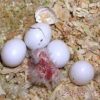
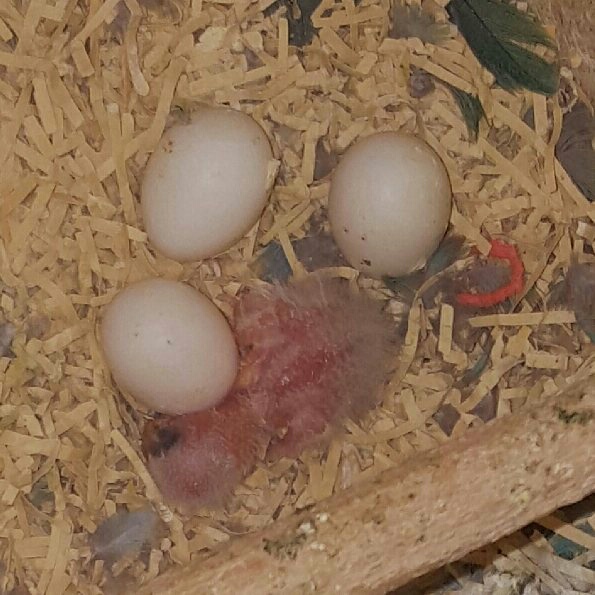
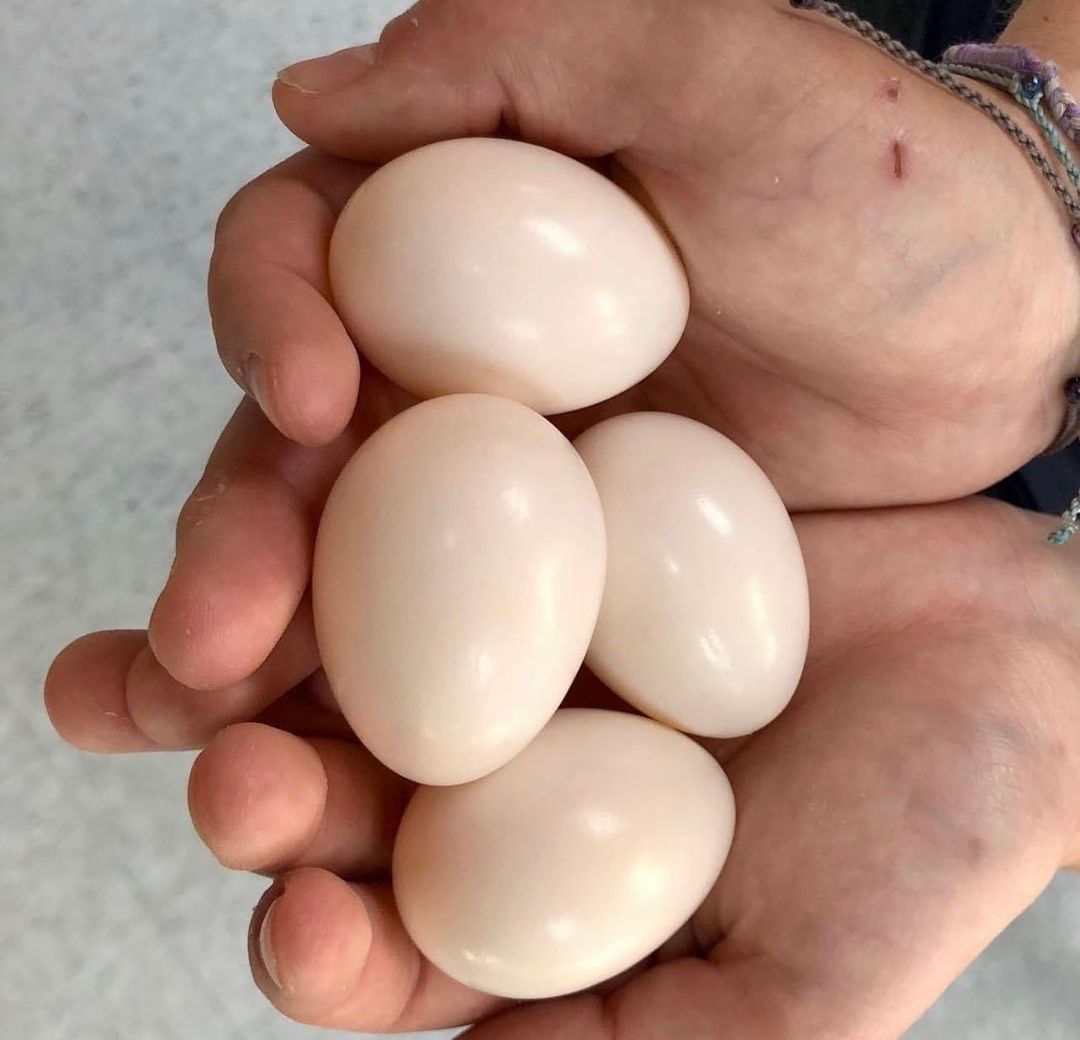
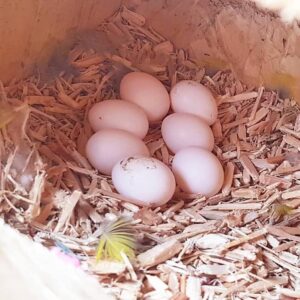
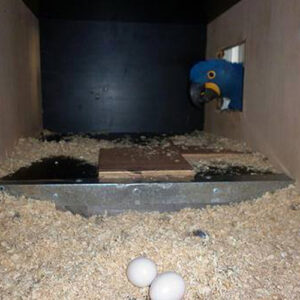
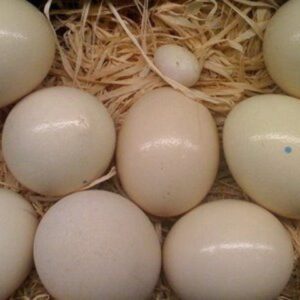
Reviews
There are no reviews yet.